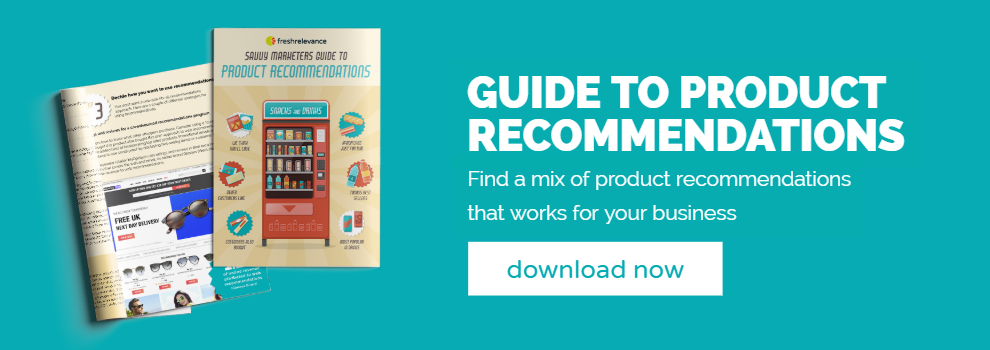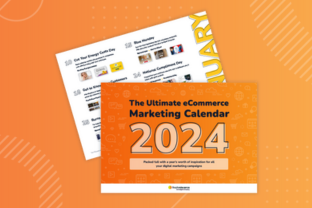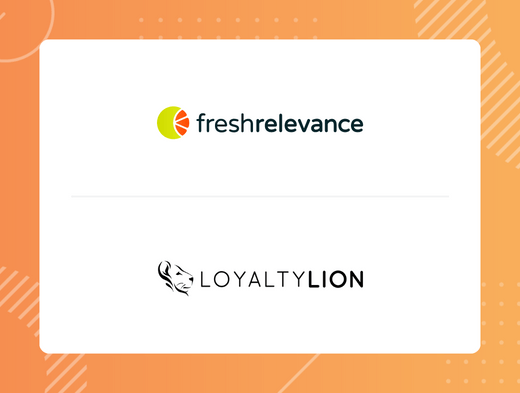Effective marketing around key gift-giving occasions like Mother’s and Father’s Days can be tricky for retailers of all sizes, even the big retail giants. In the run-up to these events, customers shopping around for the best gifts (and deals) can become frustrated by repetitive communications and irrelevant offers.
To facilitate this increased demand and competition, it’s more important than ever for retailers to make their customers’ shopping journeys as convenient as possible. However, with all the different tactics that can contribute to a more delightful experience, retailers often overlook the basics of what today’s consumers want the most when gift-shopping – a hassle-free shopping experience that makes it easy for them to find the right present, and to return it if it didn’t meet the taste of their loved one.
Personalization, the driver of convenient discovery
So what leads to an unpleasant experience? One aspect is the cognitive overload that assaults the online shopper. It can be overwhelming to sort through the SKUs found on even modest-sized sites. Filters and search functions are helpful, but they are impersonal and require the shopper to enter the right terms or hope the right filter exists. Even then, the customer might end up scrolling through dozens of pages of search results.
Product recommendations can offer a much more curated experience. However, with customers often shopping for others in the run-up to special occasions, product suggestions based on the shopper’s purchase and browsing history won’t as be effective as usual. Retailers need to be able to distinguish between presents their shoppers are buying for someone else, versus items they’ve purchased for themselves in the past. Our research shows that more than one in four (26%) of consumers wish retailers were making this distinction, indicating how marketing that’s fueled by real-time data and indicative of current shopping habits goes a long way.
In the run up to gift-giving holidays, it works well to change your recommendation strategy. Base product suggestions on the shopper’s most recent browse behavior and mix in some social proof, such as recommending the most popular products in the browsed product category. To inspire customers and make it easy to discover other items they might like, it is also vital to include product recommendations in all email communications, from the newsletter to cart and browse abandonment emails. After the holiday, product recommendations should again consider the customer’s longer-term purchase and browsing behavior, so shoppers don’t continue to get suggested products for the jewelry they bought for their significant other.
Make shipping and returns quick and easy
Another way to provide superior personalization to shoppers around key holidays is by mastering returns – an aspect of the customer journey that may seem an afterthought in the bigger picture but is important. Of customers’ top five most-desired services, returns were featured in three of them, according to our recent data. Free returns, free pickup for returns and in-store returns at any location for online purchases topped the list for return preferences.
Around gift-giving holidays, returns are inevitable – with over a quarter of gifts returned over the 2017 festive season, valuing $90B. Rather than looking at a situation where a return equals a lost sale, retailers should use it to make a positive impression with a consumer by providing a pleasant experience, enticing them to maintain a post-holidays relationship. Retailers like Bed Bath & Beyond, Bloomingdales and Costco all emphasize the ease of returning products to their stores, which is why these stores have a history of curating customers who buy from them again and again.
No matter the time of year, marketers should always be working to exceed their customers’ expectations, but the microscope on retailers’ marketing practices and services intensifies around holidays. Instead of getting caught up in the seemingly endless options to stand out from the competition, brands should focus on the catalyst for long-term loyalty – convenience. Practical ways of accomplishing this are by making it simple to discover products, and making returns quick and easy. Deploying and testing a variety of different tactics help determine what works best for a retailer’s unique goals and set of customers. Customers will benefit from a pleasant shopping experience – and reward the retailer with their loyalty.
Download the guide to find out how personalized recommendations make shopping more convenient:







